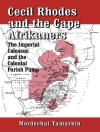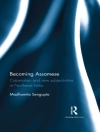Few measures, if any, could claim to have had a greater impact on British society than the poor law. As a comprehensive system of relieving those in need, the poor law provided relief for a significant proportion of the population but influenced the behaviour of a much larger group that lived at or near the margins of poverty. It touched the lives of countless numbers of individuals not only as paupers but also as ratepayers, guardians, officials and magistrates. This system underwent significant change in the nineteenth century with the shift from the old to the new poor law. The extent to which changes in policy anticipated new legislation is a key question and is here examined in the context of London. Rapid population growth and turnover, the lack of personal knowledge between rich and poor, and the close proximity of numerous autonomous poor law authorities created a distinctly metropolitan context for the provision of relief. This work provides the first detailed study of the poor law in London during the period leading up to and after the implementation of the Poor Law Amendment Act of 1834. Drawing on a wide range of primary and secondary sources the book focuses explicitly on the ways in which those involved with the poor law – both as providers and recipients – negotiated the provision of relief. In the context of significant urban change in the late eighteenth and nineteenth century, it analyses the poor law as a system of institutions and explores the material and political processes that shaped relief policies.
David R. Green
Pauper Capital [PDF ebook]
London and the Poor Law, 1790-1870
Pauper Capital [PDF ebook]
London and the Poor Law, 1790-1870
Mua cuốn sách điện tử này và nhận thêm 1 cuốn MIỄN PHÍ!
Ngôn ngữ Anh ● định dạng PDF ● Trang 300 ● ISBN 9781317082934 ● Nhà xuất bản Taylor and Francis ● Được phát hành 2016 ● Có thể tải xuống 3 lần ● Tiền tệ EUR ● TÔI 4893986 ● Sao chép bảo vệ Adobe DRM
Yêu cầu trình đọc ebook có khả năng DRM












